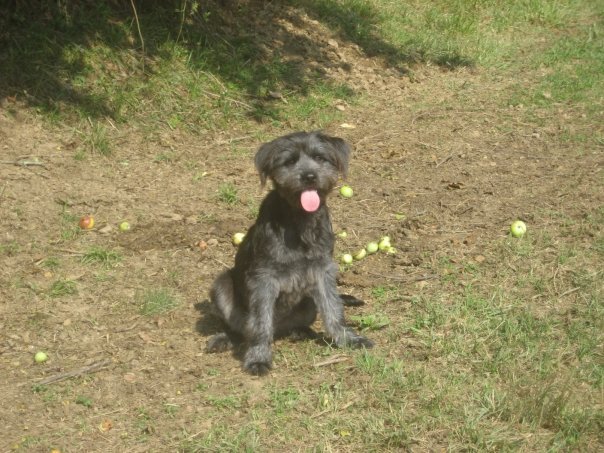QuestionI am getting a 6 week old lab shepherd cross. He looks like a lab, but has a shepherd face. I want to know more about these two breeds and approximately how he should behave. How trainable he might be, and if you think this kind of dog will be good with cats. Thanks
AnswerHi Mandy,
Congratulations on your impending puppy!
Both German Shepherds and Labrador Retrievers are known to be intelligent highly trainable dogs, that's why they're often used as Seeing Eye dogs for the blind, and for police work. That said, there is a wide degree of personality traits within any breed, and being a mixed breed, it's hard to say what traits you'll see in your dog. As a mixed breed, your dog will probably be healthier than either of his purebred relatives.
Just about any dog can be taught to get along with cats, particularly if they are introduced at a young age. Introducing a new puppy to your cat is fairly simple; you should allow the cat to determine the tenor of the meeting. You should designate areas that are off-limits to your puppy. This will give your cat "safe zones" and keep her from feeling evicted by your puppy. Don't leave them unsupervised until you're very sure they can get along. Watch for any aggressive behavior by either animal.
If your puppy starts to chase the cat, don't allow the behavior to continue, but don't punish your puppy either. Simply get his attention with a treat or toy. He's likely reacting to his natural prey drive and you don't want to instill fear over an ingrained behavioral pattern. If your cat roughs up the puppy, don't punish the cat. Your puppy has to learn where the boundaries are in their relationship.
Stay alert and let the introductions progress slowly. Don't force the meeting or expect your new puppy and cat to be the best of friends overnight.
Perhaps more important than the potential of being trainable, is how well you socialize your puppy. Your puppy is going to grow up to be a large dog, you'll want him to be well behaved, and a good neighbor in your neighborhood. For that reason, it's best to enroll in a puppy obedience class, sometimes called Puppy Kindergarten (probably not before your pup is 4 months old) where you can learn how to train your puppy, and the pup will learn how to obey. Besides the obvious convenience of having a dog that listens to you, obedience class also gives dogs and puppies important mental stimulation.
You may not think that mental stimulation is important in dogs, but it is! Boredom can lead to objectionable habits, such as barking, destroying household objects, and even self mutilation.
You can read more about how to socialize your puppy here:
http://www.bcrescue.org/socializing.html
http://www.perfectpaws.com/pup1.html
Before you get your puppy is a good time to familiarize yourself with how to go about house training him. Even though puppies under 4 months of age have little bladder or bowel control, it helps to get things rolling right from the the start, when you bring him home. You can read about house training here:
http://www.peteducation.com/article.cfm?cls=2&cat=1548&articleid=157
http://www.hsus.org/pets/pet_care/our_pets_for_life_program/dog_behavior_tip_she...
Real soon after you bring home your puppy, you will discover his needle sharp teeth! Puppies have to be taught not to bite, they have no hands after all. This is a very important first lesson you'll want to work on with your new puppy. Read about it here:
http://www.ehow.com/how_18746_stop-puppy-biting.html
http://www.lucythewonderdog.com/biting.htm
Best of luck,
Patti

 Cant afford medical care for my yorkie
Question
Mr. Bojangles BoBo
Hi, I adopted
Cant afford medical care for my yorkie
Question
Mr. Bojangles BoBo
Hi, I adopted
 Found Dog
Question
this is what it looks
Hello my is sara and my
Found Dog
Question
this is what it looks
Hello my is sara and my
 Training....
Question
Me with brady
My dog Brady is a year old, he i
Training....
Question
Me with brady
My dog Brady is a year old, he i
 Help with my best friend :)
Question
cash
Hello!
&
Help with my best friend :)
Question
cash
Hello!
&
 Rescued Shiba with ISSUES
Question
Shredder
Kristin,
I consider myself an experie
Rescued Shiba with ISSUES
Question
Shredder
Kristin,
I consider myself an experie